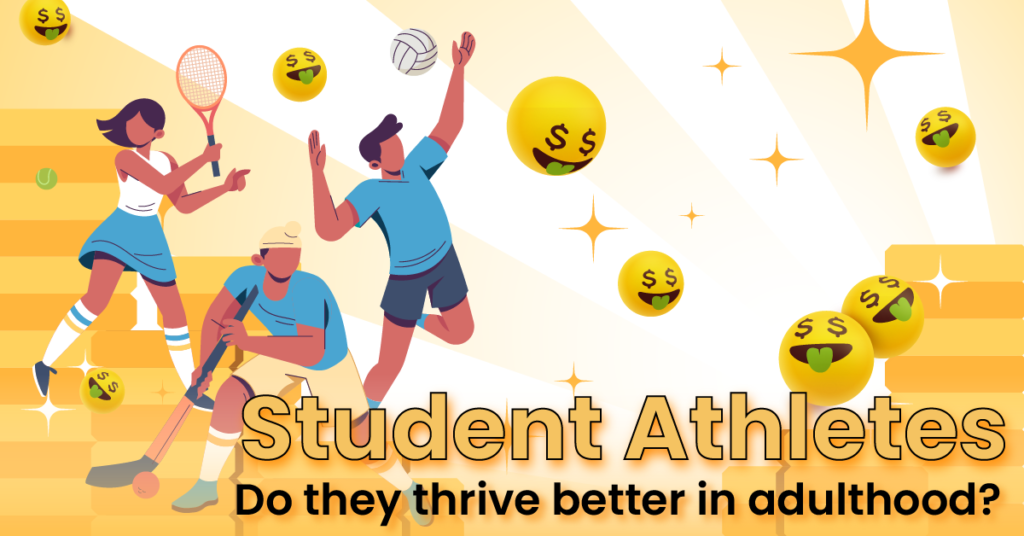
“Don’t bother being an athlete in Singapore lah… later no money ah!” Does this phrase sound familiar?
Although Singapore is and never was known for sporting prowess, we might like to start holding back such sweeping statements to our next generation as there is some proof that student athletes may thrive better in adulthood than non-athletes.
This comparison between student athletes and non-athletes is a fascinating one, as it offers insights into the potential long-term effects of participation in sports during school years. We will delve into this topic, comparing student athletes and non-athletes in four key areas: social well-being, health, financial well-being, and overall happiness.
Social Well-being
When it comes to social well-being, research suggests that student athletes generally fare better than their non-athlete counterparts. According to a study published in the Journal of Youth and Adolescence, former student athletes reported higher levels of social engagement, demonstrating stronger interpersonal skills and larger social networks. These individuals were also found to have higher self-esteem and a more positive self-image, which are key components of social well-being.
Health
In terms of health, it’s perhaps unsurprising that student athletes typically fare better. Regular physical activity from a young age can lay the foundation for a lifetime of fitness. However, it’s not all positive news. Some research suggests that student athletes may be more likely to pick up bad habits such as frequent drinking and smoking. A study published in the Journal of Adolescent Health found that former high school athletes were more likely to engage in binge drinking and use illicit substances than their non-athlete peers. One of the key possible reasons cited was: As many student athletes transition to adulthood, many stop participating in competitive arenas. The sudden loss in adrenaline and dopamine of frequently participating/winning in competitions leads them to find ‘alternatives’ that end up being undesirable.
Financial Well-being
When it comes to financial well-being, the picture is less clear-cut. While some might assume that student athletes would have an advantage due to potential scholarships or professional opportunities, research suggests this isn’t necessarily the case. A study from the National Bureau of Economic Research found that although former student athletes earn roughly 15% more than non-athletes in their adult years, they also have a significantly higher propensity to lose their money through excessive spending and poor financial planning. On the other hand, non-athletes had a higher tendency to invest smart and ensure enough to tide through unforeseen circumstances. As a result, this suggests participating in sports during school days does not directly confer a financial advantage in later life due to differing habits.
Overall Happiness
Finally, let’s consider overall happiness. Here, the evidence suggests that student athletes may have an edge. A study published in the Journal of Happiness Studies found that former student athletes reported higher levels of overall happiness than non-athletes. This was attributed to a combination of factors, including relatively happier marriages, satisfying social lives, and the physical health benefits associated with regular exercise.
Conclusion
In conclusion, while student athletes may face certain challenges such as a higher propensity for risky behaviors, they also appear to reap several benefits in adulthood. They tend to have better social well-being and overall happiness compared to non-athletes. As with many things in life, there are trade-offs and balances to be considered. Ultimately, whether or not student athletes thrive in adulthood is likely influenced by a multitude of factors beyond their athletic involvement during their school years.












